Categories
Excepteur sint ocaecat cupidatat exo proident sunt culpa.
Experience Excellence in Cornea Care
Welcome to Balaji Eye Care Hospital - Your Trusted Destination for Cornea Care Services

Settle for Nothing Less Than the Best Doctors For Cornea.
When it comes to cornea care, you deserve nothing but the best. At Balaji Eye Care Hospital, we are proud to have a team of highly skilled and experienced cornea surgery experts. Dr Jayadatt Patel ranks top among the best cornea specialists in Ahmedabad. We are dedicated to providing you with comprehensive and personalized corneal treatment.
Why Choose Balaji Eye care Cornea Services?
We are not any ordinary eye care surgery clinic; we are medical professionals committed to the well-being of our patients and healthy vision. Our best Corneal Specialists ensure you get world-class treatment for your corneal issues.

Expert Cornea Specialist
Balaji Eye Care Hospital is home to the best cornea specialists in Ahmedabad - Dr. Jayadatt Patel. He is a cornea transplant doctor dedicated to providing exceptional care for all cornea-related conditions.

Cornea Transplant Expertise
We specialize in cornea eye transplant procedures, offering cutting-edge solutions for patients needing corneal transplantation. We are known as cornea eye hospitals for surgical precision and successful outcomes.

Comprehensive Cornea Care
Whether you're dealing with corneal diseases injuries, or require transplant evaluation, we provide a wide range of services tailored to your unique needs. We ensure you get the best experience at all times when visiting us.
When should you contact your eye doctor?
It's crucial to reach out to an eye doctor if you experience:
- Severe and persistent eye pain
- A sudden change in your vision
- Blurry vision that is not improving
- Eyes that are excessively red and teary
- The sensation of an object lodged in your eye
- A significant eye injury or trauma, such as a forceful impact to the eye
How do our cornea experts assess corneal conditions?
Our eye doctor can diagnose corneal conditions during a comprehensive eye examination, which is typically a painless and straightforward process.
To identify corneal abrasions, our cornea treatment expert may use a specialized eye drop containing fluorescein dye. This dye enhances the visibility of corneal scratches, making them easier to detect.
What are the treatment options for corneal conditions?
Treatment for corneal conditions varies based on the specific diagnosis:
Prescription
Medications
Many corneal conditions can be effectively managed with prescription eye drops or oral medications.
Laser (Phototherapeutic Keratectomy - PTK)
In cases of certain corneal dystrophies and related conditions, employing a laser-based procedure known as phototherapeutic keratectomy (PTK). PTK is used to reshape the cornea, eliminate scar tissue, and improve visual clarity.
Corneal
Transplant Surgery
When the damage to the cornea cannot be repaired, surgeons may opt for corneal transplant surgery. This involves the removal of the damaged section of the cornea, which is then replaced with healthy corneal tissue obtained from a donor. For more information on corneal transplants, please book your consultation appointment.
Artificial Cornea (Keratoprosthesis - KPro)
As an alternative to traditional corneal transplant surgery, some patients with damaged corneas may receive an artificial cornea, known as a keratoprosthesis (KPro).The choice of treatment depends on the specific condition and its severity. We will guide you through the most appropriate course of action to address your particular corneal issue.
Transforming Lives, One Cornea at a Time
Most cornea specialist doctors in Ahmedabad recommend Balaji Eye Care Hospital for corneal treatment and surgery. We believe in a patient-centered approach. We take the time to understand your unique needs and concerns, ensuring you receive the most appropriate and effective treatment plan. We are equipped to diagnose and treat various corneal conditions, including but not limited to:
- Corneal Infections
- Corneal Dystrophies
- Corneal Scarring
- Keratoconus
- Fuchs' Endothelial Dystrophy
- Corneal Ulcers
- Advanced Cornea Transplants
When it comes to cornea transplants in Ahmedabad, our hospital is at the forefront. We offer advanced techniques and a compassionate approach to help restore your vision and improve your quality of life.
Have questions about corneal transplant?
-
What occurs during a corneal transplant procedure?
During corneal transplant surgery, two primary surgeries are employed. The first technique, Penetrating Keratoplasty, entails the complete removal of the cornea and its replacement with a donor cornea. In the second technique, Lamellar Keratoplasty, selective removal of only a partial thickness of the cornea is then substituted with a corresponding portion of a donor cornea. These surgical procedures address various corneal conditions and improve vision or alleviate discomfort based on the patient's needs.
-
What are types of Corneal Transplant?
1. Whole Cornea Replacement: When the entire cornea is damaged and infected beyond repair, Penetrating Keratoplasty (PK) surgery is performed. Here, the entire cornea is replaced with a healthy cornea obtained by a donor. 2. Partial Cornea Replacement: When the inner or outer layer of the cornea is affected, and the rest of the cornea is healthy, Lamellar Keratoplasty (LK) surgery is recommended. Here, just that damaged part or only a partial thickness of the cornea is replaced with a donor cornea.
-
What are the benefits of Cornea Transplantation?
- Improved Vision: Corneal transplantation is great in improving vision in individuals with damaged or diseased corneas, allowing them to see more clearly and without discomfort.
- Relief from Pain and Discomfort: For those experiencing corneal conditions causing pain, discomfort, or light sensitivity, transplantation can provide relief and enhance their quality of life.
- Corneal Disease Treatment: Corneal transplants effectively treat various corneal conditions, including keratoconus, corneal scarring, corneal dystrophies, and more.
- Restoration of Corneal Clarity: Transplantation can restore the cornea's clarity, enabling better light transmission to the retina and improving vision.
- Strengthened Eye Structure: LK techniques, in particular, help maintain the structural integrity of the eye, which can be crucial in certain conditions where only specific layers of the cornea are affected.
- Potential for Contact Lens Wear: Successful corneal transplantation may enable contact lenses, which can be an option for some patients to achieve better vision.
- Enhanced Aesthetic Appearance: In cases where corneal conditions have led to a cloudy or irregular eye appearance, transplantation can enhance the aesthetic appearance of the eye.
-
What is the expected recovery time?
Corneal transplant surgery is typically conducted as an outpatient procedure, allowing you to return home on the same day. You won't be able to drive, so you should arrange for someone to provide transportation after the surgery.
A follow-up appointment is necessary the day following the surgery to monitor the healing progress of your eye.
Following the surgery, you must adhere to specific guidelines to support your eye's recovery:
- Use the prescribed special eye drops.
- Refrain from rubbing or applying pressure to your eye.
- Wear eyeglasses or a protective shield to safeguard your eye.
The duration of the recovery period can vary depending on the type of transplant, taking up to a year for complete recuperation. It's advisable to discuss with your doctor the timeline for resuming your regular activities.
-
When should you seek immediate medical attention?
Corneal rejection may manifest with symptoms such as eye pain, sensitivity to light, redness, or cloudy and hazy vision. If you experience any of these symptoms following a corneal transplant, promptly contact your eye doctor.
-
Are there any potential side effects?
Just like any surgical procedure, corneal transplant surgery carries certain risks. The primary risk is tissue rejection, wherein your body identifies the new cornea as foreign and initiates an immune response against it. Prescribed medications can mitigate this rejection and preserve the transplanted cornea.
Corneal transplant surgery may also lead to other ocular complications, including infection, bleeding from the eye, retinal detachment, and glaucoma. In severe cases of tissue rejection or other complications, a subsequent transplant may be necessary. Contact us to gain a comprehensive understanding of the potential risks associated with corneal transplant and whether it is the right treatment choice for you.
Schedule Your Refractive Surgery Consultation
If you're looking for the best eye laser treatment in Ahmedabad, contact us today to schedule a consultation with our experienced refractive surgeons.
Your Vision, Our PriorityDiscover how refractive surgery can transform your vision and give you the desired freedom. Experience Clearer Vision with Refractive Surgery at Balaji Eye Care.


